
Homemade Vegetable Stock Recipe
This can be a nice, basic Vegetable Inventory recipe that’s simple to make. It’s a necessary in each kitchen, and can make something you utilize it in tastier. As with all selfmade shares, it’s far superior to retailer purchased!
Naturally this can be a good substitute for vegetarians and vegans every time a meat inventory is named for. However actually, it’s scrumptious in its personal proper and suited to all types of purposes by anyone!
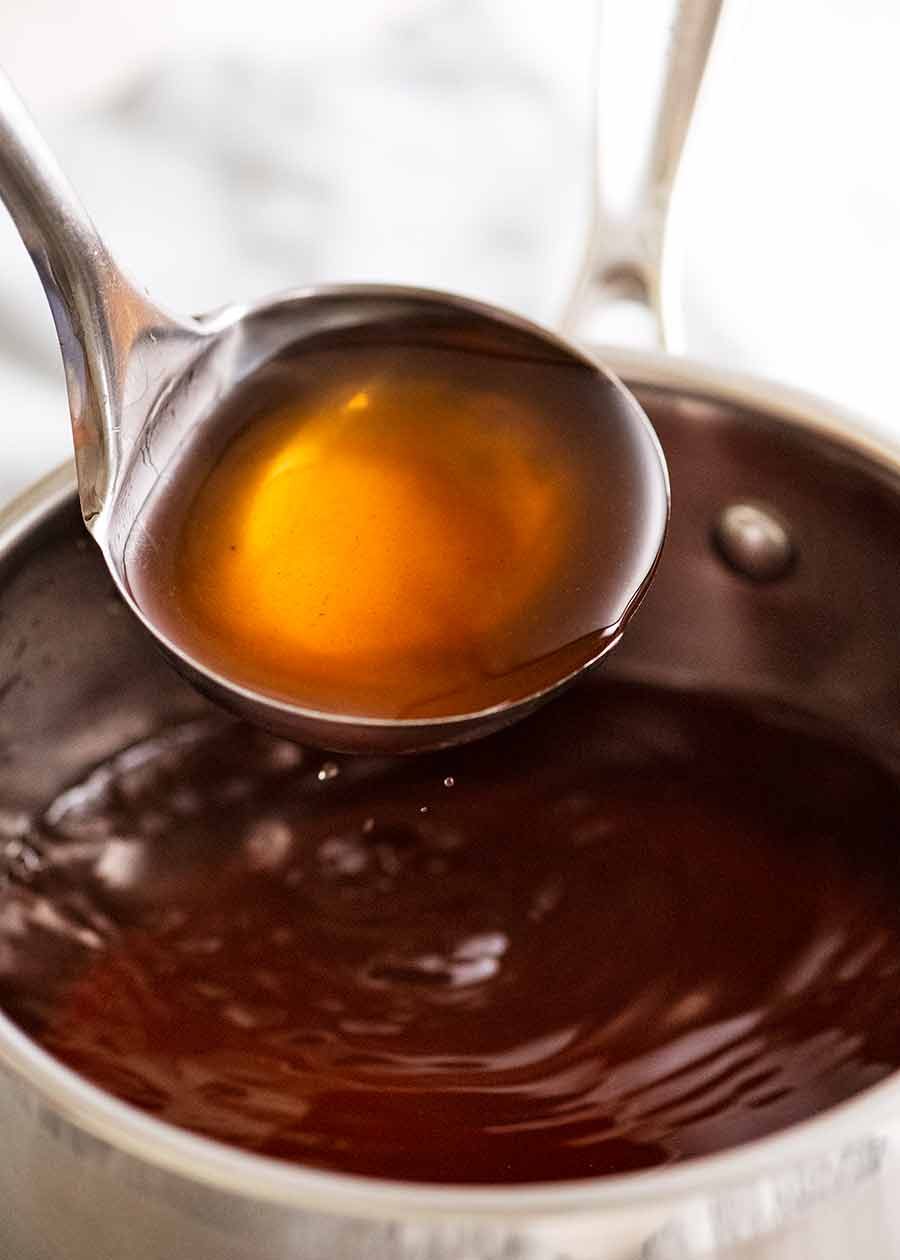
As with all shares, selfmade Vegetable Inventory is much superior to retailer purchased, with the additional advantage that it’s a lot simpler to make than seafood and meat shares which frequently name for manhandling of appreciable quantities of bones (I’m pondering of you beef inventory!).
You’ll love that this recipe is absolutely easy, simply calling for greens, herbs and aromatics to be simmered gently for two hours till the water is infused with lovely flavours.
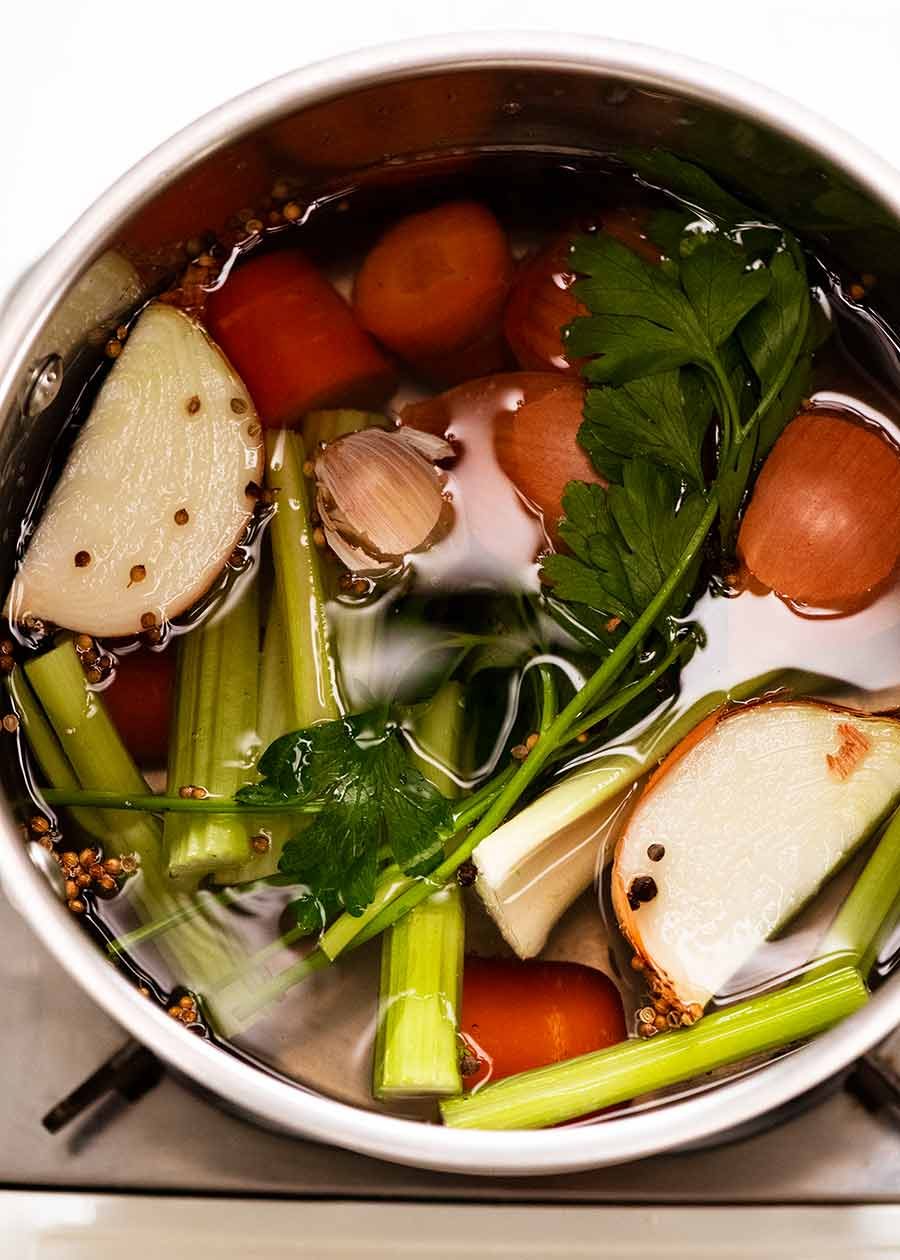
This can be a conventional Western-style vegetable inventory, free from any bells and whistles like ginger or obscure greens. It’s made with carrot, celery and onion as our base greens, plus parsley, bay depart, thyme, garlic, black peppercorns and coriander seeds as our added flavourings. Nothing extra.
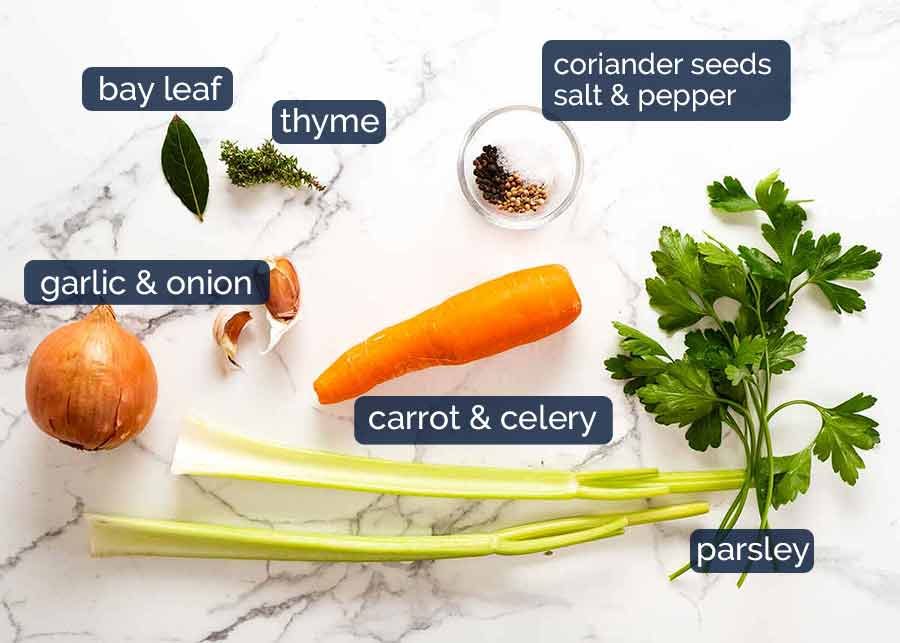
This can be a nice basic, easy recipe for vegetable inventory the place all the pieces is simply positioned in a saucepan and simmered very gently so the water is infused with flavour from the greens and aromatics. There’s no must sauté the greens first – this truly makes the inventory cloudy which to me will not be fascinating because it limits the usefulness of the inventory (for instance to make attractively clear soups).
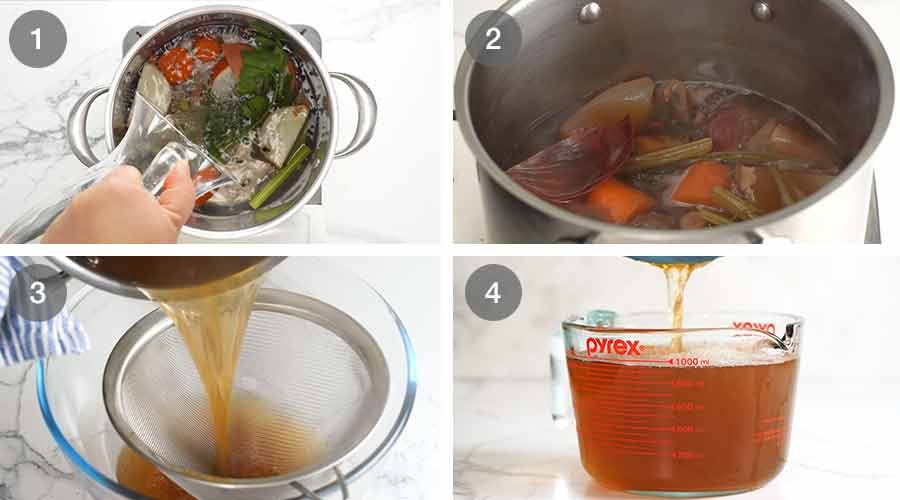
-
Place in pot – Place water and all of the substances in a pot;
-
Simmer 2 hours – Simmer for two hours and scale back by half. We’re beginning with 2 litres / 2 quarts of water which is able to scale back to 1 litre / 1 quart;
-
Pressure – Pressure right into a bowl, urgent juices out of the greens; and
-
Measure – Pour right into a jug to measure. When you’ve got far more than 1 litre / 1 quart, return to the pot and simmer to scale back additional. When you’ve got a lot much less, prime it up with water (as a result of in any other case it will likely be too concentrated).
Being freed from meat, selfmade Vegetable Inventory will final no less than 5 days within the fridge, or 3 months within the freezer. When freezing, I sometimes freeze in 1 cup measures, simply to make it simpler to portion out (moderately than defrosting a whole 1 litre batch simply to make use of 1 cup).
Beneath it’s merely proven in a single giant jar as a result of I made it to cook dinner Mushroom Soup, which makes use of a lot of the batch.
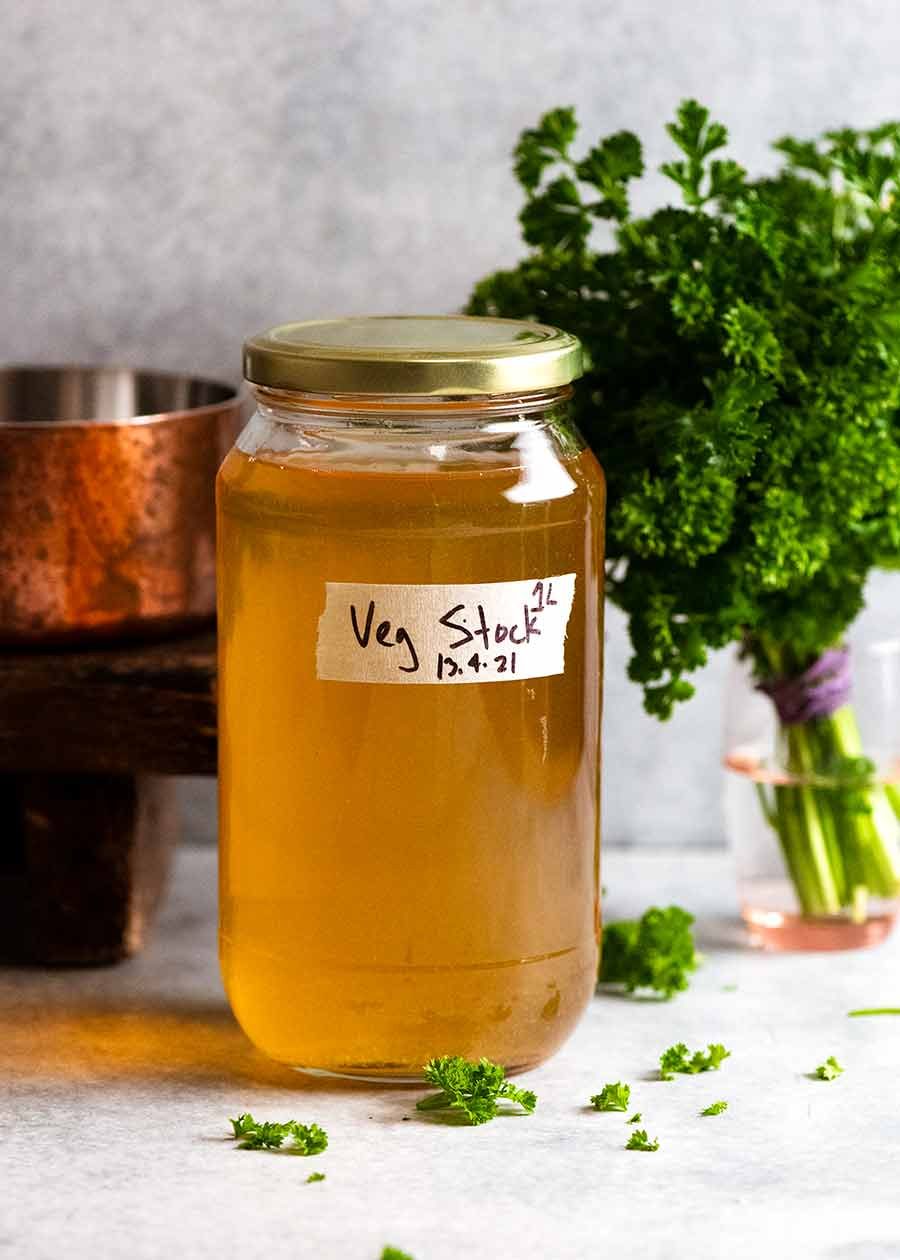
The energy of this inventory is such that it may be used 1:1 in any recipe calling for Vegetable Inventory. It can be used in its place for any recipe calling for chicken inventory for those who favor a lightweight, cleaner, vegetal flavour.
Listed below are some recipes that may actually be elevated to restaurant high quality for those who make them with selfmade Vegetable Inventory as a substitute of retailer purchased inventory:
And so one other inventory is added to my selfmade inventory assortment – few extra to come back! 🙂 – Johnsat x

Ingredients
- 2 litres / 2 quarts water
- 2 medium carrots (unpeeled), cut in 3 (180g/6oz each)
- 1 onion , quartered (~250g/8oz)
- 1 celery stem , cut in 4 pieces (~180g/6oz)
- 2 garlic cloves, smashed (Note 1)
- 3 parsley stems
- 1 bay leaf
- 1 thyme sprig
- 1/2 tsp black peppercorns
- 1/2 tsp coriander seeds
- 1 tsp salt , kosher/cooking for store bought level salted vegetable stock (Note 2)
Instructions
- Simmer 2 hours: Place all ingredients in a large pot. Bring to simmer over high heat, then reduce heat to low and simmer for 2 hours without a lid. The water should not be bubbling, it should just ripple gently. Stock should reduce by about half.
- Strain, pressing juices out of the vegetables. You should have 1 litre / 1 quart (4 cups) of stock. If you have much more than this, return the strained liquid into the pot and simmer to continue to reduce.
- How to use: Use in place of store-bought stock in any recipe – 1:1 ratio.
- Storage: Keeps in the fridge for 5 days, or freeze for 3 months. I usually freeze in 1 cup portions in jars, small ziplock bags (freeze flat for efficient use of space and faster defrosting) or in plastic containers.
Notes
1. Smashed garlic – Place side of large knife on garlic then use the heel of your hand to bash the side of the knife once, making the garlic burst open but mostly hold together.
2. Salt – This is the salt quantity required to make vegetable stock taste like store bought stock. It’s optional however because one of the nice things about homemade stocks is that you can make the saltiness to your taste. For meat-based stocks, I do not add salt so they can be reduced by 80%+ to make jus without ending up too salty. We don’t usually make jus with vegetable stock, so you can salt it if you wish.
3. Nutrition for entire batch which includes the calories of all the vegetables. In reality, most of the vegetables are discarded.

































